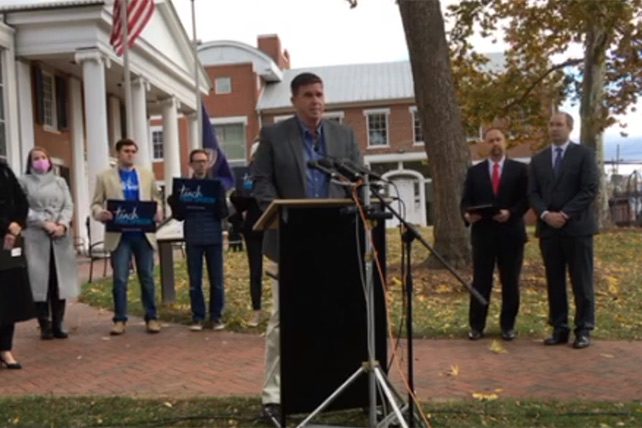Last weekend (Nov. 13), Dare 2 Share, the ministry whose mission is to mobilize youth to evangelize their world, hosted a world-wide event with over 1,300 youth groups participating in the live-stream gospel training.
The event called, Dare 2 Share Live, is designed to equip teens to start a gospel revolution in their community. During the event, students are trained to “pray, serve others, and share their faith.”
“Our theme was ‘Whatever it Takes,’ based on the story of the men who tore a hole through the roof to get their paralyzed friend to Jesus,” Dare 2 Share founder Greg Stier said. “They risked their lives, money, and status in the community to get him to Jesus. We asked the teens, ‘Are you willing to do whatever it takes to get your friend to Jesus?’”
During the event, students and volunteers are trained in the morning hours, then are sent out into their communities to serve and share the Gospel of Jesus Christ with everyone they come into contact with.
“When students share the Gospel, especially with their peers, they ask questions, pray deeply and learn to depend on the Holy Spirit,” Dare 2 Share says on their website. According to the organization, this encourages teens to participate in the Great Commission (Mathew 28).
RELATED: Introducing a Pandemic-Proof Way to Share the Gospel
Saturday’s training included speakers, teachers, and musicians. Stier and Zane Black, who have recently been featured as speakers on Winter Jam (one of America’s largest Christian concert tours), joined Hosanna Wong and Jerrod Gunter in helping train the thousands attending the live event. Red Rocks Worship and DJ Bobbito The Chef provided the worship and music.
Dare 2 Share Live was hosted in Denver, Colorado and witnessed decisions for Christ happening all over the world. Over 100 decisions were made during the day’s training.
The Dare 2 Share smartphone app called “Life in 6 Words” is used to help teens (and adults) interact and engage with their communities. The app guides users “through the clear message of the gospel,” their website says — you just need to initiate the conversation.
The app shows real-time statistics of people who are sharing their faith all over the world, so teens are are able to join in with youth groups in other states who are sharing their faith. The app also provides the opportunity to pray for those engaging in Gospel conversations at any given very moment.



















